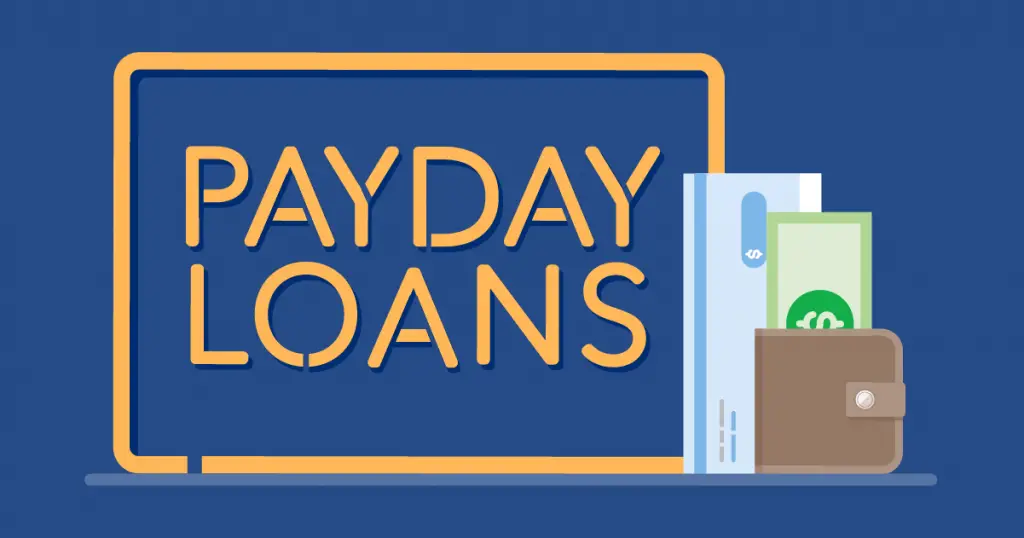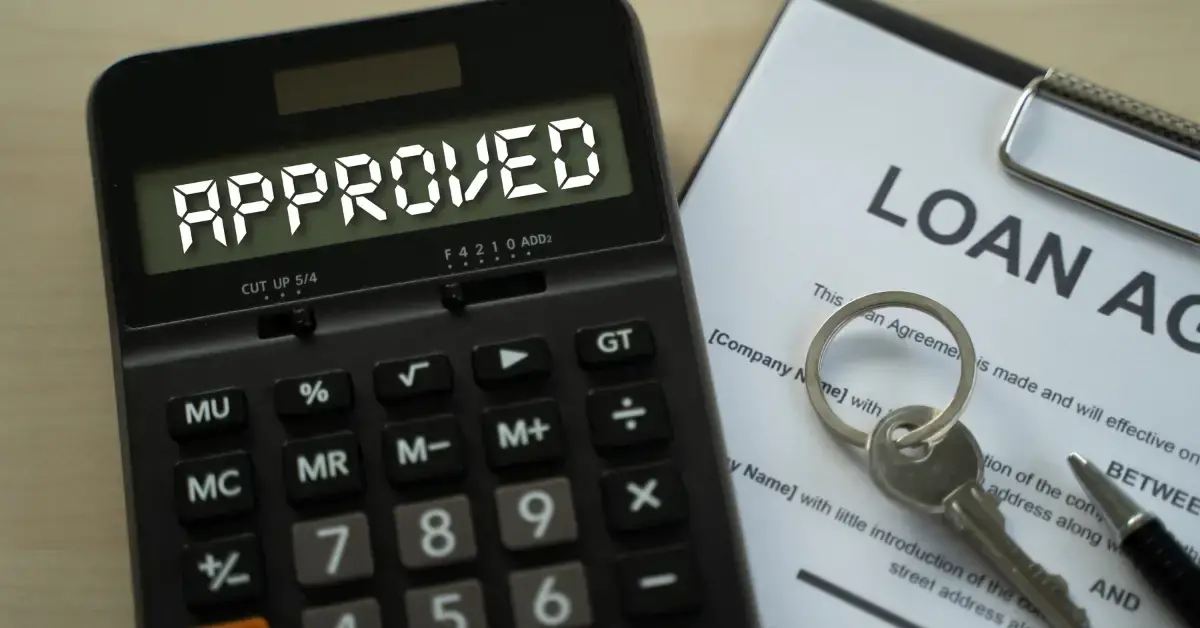For numerous individuals, achieving the status of being their own boss is an ultimate aspiration. In today’s rapidly expanding “gig economy,” many individuals are seizing the opportunity to work for themselves. Payday loans for self employed!
Continue reading to discover more about payday loans designed specifically for the self-employed!
Recent statistics from the U.S. Bureau of Labor Statistics indicate that there are more than 9.5 million self-employed individuals. These individuals, including small business owners, entrepreneurs, and independent contractors, utilize their skills and expertise across various industries.
Although the freedom of self-employment brings many benefits, there are also certain challenges. Alongside the stress and difficulties that come with running one’s own business, financial troubles can prompt self-employed individuals to seek quick cash loans that assist them in recovering from a loss of income.
Table of Contents
Payday Loans Today
This reality is particularly noticeable in the present-day economy, as the global pandemic has significantly impacted our work, lifestyles, and financial circumstances.
Given these circumstances, it’s not surprising that the demand for financial relief through personal loan is increasing among self-employed individuals.
When it comes to obtaining money quickly and conveniently, online payday loans have emerged as one of the fastest options. However, it can be challenging for self-employed individuals to access payday loans specifically tailored to their needs.
Payday loan providers typically require documents such as pay stubs and W2 forms to verify employment, which can pose difficulties for self-employed individuals. Fortunately, there are alternative options available for those in need of swift financial assistance.
While traditional payday loans may not be feasible for self-employed workers, there are still avenues of support. In this blog, we will explore the necessary documentation and available resources that can provide loans to self-employed individuals.
What Are Payday Loans?

Payday loans serve as short-term solutions for immediate financial needs, bridging the gap between paydays. These loans allow borrowers to access the necessary funds before their scheduled payday.
To acquire a payday loan, individuals must complete an application with a payday loan company. Upon approval, borrowers are required to write a check for the desired loan amount, including the lender’s fees and interest.
Subsequently, the lender provides the requested funds and cashes the borrower’s check at the end of the loan term, typically around 14 days. Payday loans can be obtained through numerous physical locations nationwide or via online lenders accessible with a simple click.
For individuals with poor credit (defined as a FICO score of 600 or lower) who are unable to secure loans from traditional banks, online loans for bad credit present a viable alternative. Considering that approximately 20 percent of Americans have bad credit, payday loans have gained popularity.
Due to the need for quick credit assessment and approval, payday lenders face challenges when evaluating the creditworthiness of self-employed individuals who lack income verification or an established credit history.
Without prompt verification of income, payday lenders cannot ascertain whether self-employed borrowers generate sufficient earnings to repay the principal amount and accrued interest.
Given the limitations of traditional payday loans for self-employed individuals, the question arises: where can they find financial assistance?
Payday loans for self employed!
What Do Self-Employed People Need To Get a Loan?

When applying for a loan, the prospective lender evaluates the financial well-being of borrowers. In order to determine creditworthiness, the lender examines various factors, including income, credit scores, and additional relevant criteria.
However, for individuals who lack W2s and pay stubs as evidence of a stable income, alternative documentation becomes crucial in the loan application process.
Tax Returns and Transcripts

Among the various documents required to validate income, tax returns are highly sought-after by lenders when processing applications from self-employed individuals. Tax returns offer a comprehensive overview of your earnings over a specific period, making them a valuable resource.
Typically, lenders request two to three years’ worth of signed tax returns for most loan applications.
For self-employed individuals with poor or average credit scores, tax returns serve as an excellent supporting document. While a low credit score may decrease the likelihood of loan approval, providing solid evidence of your income can significantly improve your chances.
Ultimately, lenders seek assurance that their loan, along with the accrued interest, will be repaid. Demonstrating your ability to meet these obligations can greatly enhance the likelihood of loan approval.
Schedule C Document
Alongside your tax returns, lenders may request your most recent Schedule C document.
This is particularly applicable to individuals operating as sole proprietors or single-member LLCs, where the Schedule C provides a comprehensive breakdown of business profits, expenses, and losses—reflecting the financial aspects of your solo enterprise.
Given that your tax return typically encompasses the majority, if not all, of your business income and profits, the Schedule C serves as a corroborating document that confirms the accuracy of your reported earnings.
It provides lenders with a detailed insight into the financial aspects of your business operations, supporting the factual representation of your income.
1099-MISC Form
If you work as an independent contractor and are self-employed, it is essential to have the 1099-MISC form readily available. The 1099-MISC form serves the purpose of reporting any income exceeding $600 that you have received from clients or businesses for the professional services you provide.
Lenders consider this form, along with documents like your tax returns, to evaluate the stability of your self-employed income and determine your ability to meet the loan terms successfully.
Schedule SE Form
The Schedule SE Form plays a crucial role in illustrating the taxes paid on your income, including the contributions towards Medicare and Social Security. When assessing your loan application, reputable lenders seek assurance that your tax payments are up to date and accurate.
Discrepancies in your reported expenses could potentially raise concerns and trigger an audit by the Internal Revenue Service (IRS) to evaluate your financial position. Such risks would not align well with the lender’s investment objectives and are therefore unfavorable.
Bank Statements
Self-employed borrowers should have a substantial amount of bank records spanning several weeks or even a year. These statements provide evidence of regular deposits from your work and demonstrate to potential lenders that you have a reliable income stream capable of supporting loan repayments.
Loan Collateral
Loans come in two forms: unsecured and secured. Unsecured loans are granted solely based on the borrower’s creditworthiness and are not backed by any collateral. On the other hand, secured loans, such as car loans or mortgages, are supported by tangible assets with value, known as collateral.
For individuals with a poor credit score who are unable to obtain an unsecured loan, it might be possible to acquire a secured loan by offering assets like a house, car, or financial savings account as collateral.
Collateral reduces the risk for the lender and consequently improves your chances of loan approval. However, it’s important to note that if you fail to make the monthly payments or default on a secured loan, the lender has the right to seize your assets to recover their losses.
Other Loans for the Self-Employed
Securing payday or personal loans can become even more challenging for self-employed workers with bad credit.
It’s widely known that having a poor credit score can restrict access to favorable interest rates and flexible repayment plans, both of which contribute to a more manageable loan experience.
If you find yourself in this situation, where obtaining a loan seems impossible, here are alternative options worth considering as a self-employed individual:
Credit Card Cash Advance
Cash advances function as short-term loans that are financed by the line of credit linked to your credit card. Acquiring a cash advance is as straightforward as withdrawing cash from any ATM worldwide, rendering it even more convenient than a payday loan.
However, it is crucial to approach this option with great caution due to the potential drawbacks associated with cash advances on credit cards.
These cash disbursements not only carry exorbitant interest rates, in addition to your card’s APR, but they may also involve supplementary processing fees contingent upon the ATM or bank from which you make the withdrawal.
Moreover, individuals with poor credit may only be eligible for this alternative if they already possess a credit card, as obtaining a new card could pose challenges.
Should you decide to pursue this route, it is essential to bear in mind that without a well-thought-out repayment plan in place, opting for a cash advance can further worsen your already unfavorable credit situation. Exercise caution when making this choice.
Home Equity Loans and HELOCs
If you’re a homeowner in need of quick cash, the solution to your short-term financial requirement might be right under your roof. By leveraging the current equity in your home, you have the opportunity to secure a home equity loan or a home equity line of credit (HELOC).
The equity of your home refers to the disparity between the amount you owe on your mortgage and the present value of your property. Let’s illustrate this with an example: Suppose you purchased your home with a $200,000 mortgage loan.
After a few years, the value of your home increases to $280,000. This means that you now possess $80,000 in equity, as the value of your property has surpassed the original purchase price. Take a moment to appreciate your realtor for this fruitful investment!
How Do They Work?
A home equity loan is a type of loan that uses the property as collateral. Due to being secured loans, they typically have lower interest rates compared to many other loan options.
Once approved, the funds from a home equity loan are typically disbursed and deposited into the borrower’s bank account within a week.
Repayment of a home equity loan is done through an installment plan, which runs alongside any existing mortgage payments. This is why home equity loans are often referred to as “second mortgages.”
On the other hand, a line of credit, known as a HELOC (Home Equity Line of Credit), allows for a revolving amount of money. For example, if you have $80,000 in equity, that becomes the total available borrowing amount.
With a HELOC, it is similar to having a credit card, where you can choose to use a portion of the available equity, such as $40,000, without having to repay the entire $80,000.
The loan options tied to your home equity can come with either a fixed interest rate (home equity loan) or a variable interest rate (HELOC).
Ultimately, the decision between the two options depends on your financial needs and repayment preferences. However, it is crucial to have a clear understanding of your home’s actual value.
Therefore, it is recommended to research the real estate market in your area, particularly how properties similar to yours are selling. If possible, obtaining a professional appraisal is also beneficial.
Final Thoughts
In conclusion, self employed payday loans for individuals offer a practical solution to meet short-term financial needs. With their flexibility and accessibility, these loans provide a lifeline for entrepreneurs and freelancers facing unexpected expenses or cash flow gaps.
However, it is crucial to approach payday loans responsibly and consider alternative options whenever possible.
By exercising caution and understanding the terms and conditions, self-employed individuals can harness the benefits of payday loans while maintaining financial stability and pursuing their entrepreneurial dreams.
Remember, payday loans can be a helpful tool, but they should always be used judiciously.

